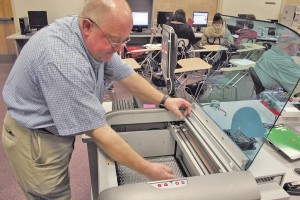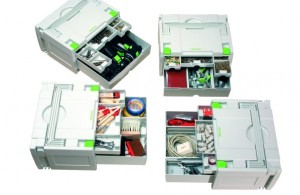Writing To Be Read? Let’s Hope It Works
Posted on December 19, 2012
Filed Under Communication, Technology, The Writing Life | Leave a Comment
Oh dear, an august research paper reports that, at least when it comes to computers, people don’t read their manuals. “The median proportion of the times that participants reported solving problems with computer applications by using printed manuals was 0 percent,” the paper’s authors, David G. Novick and Karen Ward, advise.
Computer users reported they were as likely to ask for someone’s help as to read even online help.
 That’s hardly an endorsement of technical writing in the computer biz, at any rate. But when you think about it, computer manuals should be among the most accessible examples of technical writing. They’re presumably written for a mass audience. Computer users aren’t required to read their manuals, but they don’t consult them anyway. Where does that leave technical writers? If we’re not required reading, will we have any readers? And if we are required, will we be read closely enough?
That’s hardly an endorsement of technical writing in the computer biz, at any rate. But when you think about it, computer manuals should be among the most accessible examples of technical writing. They’re presumably written for a mass audience. Computer users aren’t required to read their manuals, but they don’t consult them anyway. Where does that leave technical writers? If we’re not required reading, will we have any readers? And if we are required, will we be read closely enough?
The stakes can be pretty high here, even if a tech writer’s readers aren’t working in a nuclear power plant or a hospital. You want processes and procedures to be taken seriously, to be absorbed by their users. That’s a prime reason for writing them out.
Read more
Good Tech Writers Set Their Own Lean Limits
Posted on December 15, 2012
Filed Under Business, Technology, The Writing Life | Leave a Comment
Writers need readers or their writing may not exist. Unless you’re a diarist or a personal blogger, you want assurance that someone will be reading your work. Technical writing has a leg up in that regard. You won’t be writing unless you have a setting or a process to describe – a specific purpose is built into your output.
 Okay. But what if you’re writing for a publisher with strict formatting requirements? Could that seriously cramp your style? Might a template or word limit deflect your motivation for even getting started? It certainly could, Jeffrey Way, editor of the Nettuts+ blog confirms. Potential publishers shouldn’t be setting limits on technical writers if they can possibly avoid them. (That’s assuming, of course, given writers are orderly and efficient in the first place. But what competent technical writer wouldn’t be?)
Okay. But what if you’re writing for a publisher with strict formatting requirements? Could that seriously cramp your style? Might a template or word limit deflect your motivation for even getting started? It certainly could, Jeffrey Way, editor of the Nettuts+ blog confirms. Potential publishers shouldn’t be setting limits on technical writers if they can possibly avoid them. (That’s assuming, of course, given writers are orderly and efficient in the first place. But what competent technical writer wouldn’t be?)
For a while, Way had word count and formatting requirements for Nettuts+, but he dropped them.
Read more
A Web Manual on Technical Writing
Posted on November 27, 2012
Filed Under Communication, Technology, The Writing Life | Leave a Comment
Here’s an online e-book that could support a college-level course on technical writing – in the form of Content Strategy 101, the book’s title. Its authors are Sarah O’Keefe and Alan S. Pringle. Sarah is the founder and Alan the director of publishing operations at Scriptorium Publishing, “a content strategy consultancy that specializes in technical content.”
 It’s an act of generosity, as well as enlightened self-interest, to place an entire manual on technical writing on the web, linked section by section and chapter by chapter. There are also EPUB, print and Kindle versions, these for sale – where the self-interest comes in most evidently.
It’s an act of generosity, as well as enlightened self-interest, to place an entire manual on technical writing on the web, linked section by section and chapter by chapter. There are also EPUB, print and Kindle versions, these for sale – where the self-interest comes in most evidently.
In the book’s foreward, Ann Rockley leads off by talking about “content strategy.” “All too often,” she notes, “content strategy is applied only to the most visible information: marketing collateral and web sites. Useful as they are, these are not the only types of content that can benefit from a rigorous application of content strategy. The information created by technical communicators—documentation—is just as important, but for a long time has received short shrift when compared to its more high-profile brethren.”
Somebody’s paying book-length heed to documentation as an engaging writing discipline. All right!
Read more
Fewer Hyphens and More Woes?
Posted on November 17, 2012
Filed Under Communication, Technology, The Writing Life | Leave a Comment
We’re going to get a little technical on this technical writing blog, but at the end of the post you’ll see that there’s a big reward for staying with us.
Subject: The hyphen.
Kimberlee Kile discussses the hyphen’s functioning by noting, first off, what a hyphen is not – it’s not a dash, like the one we just used here. A hyphen is a shorter dash, used for connecting words that belong together. A dash, a longer hyphen, you might say, is used for setting off related elements in a sentence – that is, allowing one to call attention to the other. A hyphen brings two related words together, and a dash emphasizes a longer relationship. But wait, that’s us, not Kimberlee, talking.
 “A hyphen,” Kimberlee says, “mainly functions to connect compound adjectives and nouns.” Well sure, those are the sort of words that belong together. But did you know that hyphenated words are “being phased out of our language,” especially on the Internet? And that relentless hyphen-hunting resulted in the elimination of about 16,000 hyphenated words from the Shorter Oxford English Dictionary (2007)? Now that’s hyphen-excision with a vengeance. (Maybe the editors were really trying to save paper?)
“A hyphen,” Kimberlee says, “mainly functions to connect compound adjectives and nouns.” Well sure, those are the sort of words that belong together. But did you know that hyphenated words are “being phased out of our language,” especially on the Internet? And that relentless hyphen-hunting resulted in the elimination of about 16,000 hyphenated words from the Shorter Oxford English Dictionary (2007)? Now that’s hyphen-excision with a vengeance. (Maybe the editors were really trying to save paper?)
Read more
Engaging Education in Mississippi’s Technical Schools
Posted on November 12, 2012
Filed Under Education, Technology | Leave a Comment
Educators are continually faced with the challenge of upgrading the image of vocational or technical education into one that’s representative of currently pertinent, enticing career fields. That’s increasingly important as the costs of four-year colleges become steadily more prohibitive. (For a lot of families, they’ve already passed the manageable point.)
 So it’s encouraging to see, in a post in the Picayune Item, a school district in Mississippi changing not only the name of its “technical applications” classes but upgrading the nature of the training itself. It will now include “3D printers, Vex robot kits, a laser engraver and a state of the art milling machine.” That’s an encouraging way to prepare young people for the realities of today’s technical workplaces, those in which they can be at the vanguard of their fields.
So it’s encouraging to see, in a post in the Picayune Item, a school district in Mississippi changing not only the name of its “technical applications” classes but upgrading the nature of the training itself. It will now include “3D printers, Vex robot kits, a laser engraver and a state of the art milling machine.” That’s an encouraging way to prepare young people for the realities of today’s technical workplaces, those in which they can be at the vanguard of their fields.
Read more
Tool Kits for the Well-Organized (and Well-Heeled) Technician
Posted on October 31, 2012
Filed Under Technology | Leave a Comment
After you get past pencil and paper, what sort of tool kit is necessary to be effective as a technology tech? That depends, of course, on the job at hand. But for carrying your wires, crimps and caps, along with the tools to install them, there are a host of carriers.
 One of the newer ones caught our eye for its handy-dandy convenience, and then it raised our brow for its high price tag. There’s also its tongue-twisting name: the Festool Sortainer.
One of the newer ones caught our eye for its handy-dandy convenience, and then it raised our brow for its high price tag. There’s also its tongue-twisting name: the Festool Sortainer.
“In just a couple of days,” writes Stuart Deutsch on Make, they (Sortainers) have “have proved to be among the most versatile and effective small tool and parts organizers I have ever used.” With drawers of different sizes, Sortainers are, indeed, a means of keeping small-to-tiny parts well-organized. And, if you need more than one, they’re readily stackable as well as handy to carry. They’ve got big, sturdy, fold-away handles.
Yet they sell for $140 a unit, a bit pricey, as Deutsch notes. But he adds that “their quality, utility, and elegance justify the one-time investment.” That depends, we suspect, upon how serious a technician one is.
Read more
Check Out This Internet Writing Workshop
Posted on October 23, 2012
Filed Under Communication, Technology, The Writing Life | Leave a Comment
I’ve just come across a great online writing workshop, Writing Commons, created by Joe Moxley, an English professor at the University of South Florida. The beauty of the Internet is that you never know in roaming it when you’re going to encounter a great new resource – Writing Commons is proof of that.
 The site has apparently been around for a year or so and now, as occurs with Internet utility, its use is steadily picking up – “from about 200 visitors daily to more than 1,000 daily visitors now.”
The site has apparently been around for a year or so and now, as occurs with Internet utility, its use is steadily picking up – “from about 200 visitors daily to more than 1,000 daily visitors now.”
Writing Commons wants to be “the open-education home for writers.” We presume that technical writers are as welcome there as any other practitioners. In fact, we just looked a little closer and found that, “Writing Commons wants to be considered an alternative to expensive textbooks used for college courses in composition, technical writing, creative writing and poetry.” So there, technical writing is included. Once you’ve roamed the site, there will no longer be any excuses for clumsy expression of any ilk.
Read more
No Generation Gap During Today’s Space Jump
Posted on October 14, 2012
Filed Under Business, Communication, Technology | Leave a Comment
Felix Baumgartner’s jump from the edge of space this afternoon demonstrated a lot of things, but one, surely, was the potential of the Internet as a real-time TV channel for the entire world. This time it was Red Bull energy drink and its space-jump team taking advantage of the new worldwide web “channel.” Who might it be in the future?
 That’s a question worth considering, but there’s no ready answer, because we can’t predict the future. Yet it struck me that, at least during the brief time I checked before Baumgartner stepped into space, the usual Sunday chatter was continuing on the regular TV channels, as though they had suddenly become irrelevant. Nobody but RedBullStratos.com on the Internet was covering the space adventure live.
That’s a question worth considering, but there’s no ready answer, because we can’t predict the future. Yet it struck me that, at least during the brief time I checked before Baumgartner stepped into space, the usual Sunday chatter was continuing on the regular TV channels, as though they had suddenly become irrelevant. Nobody but RedBullStratos.com on the Internet was covering the space adventure live.
There a daredevil Austrian athlete was climbing to an altitude of 128,100 feet, or 24-plus miles, dangling in his capsule from a tear-dropped-shaped balloon. Anticipation kept building as Red Bull’s broadcast furnished the steadily increasing distance from Earth.
As my colleague Dennis Owen noted later, NASA served up some pretty exciting adventuring with its early space flights. But there, the astronauts remained confined to their cabins until they landed, whether on the moon or back on earth. Here, after a two-hours-plus ascent, Felix Baumgartner stepped into the sky from a platform hardly wider than a skateboard with a parachute strapped to his spacesuit. We bet NASA’s entire staff was watching from whatever computers they had at hand on a Sunday.
Read more
Keep Promising Young Immigrants With Us
Posted on October 7, 2012
Filed Under Business, Government, Technology | Leave a Comment
Whichever candidates win these elections, when we get back to governing, it can be hoped that a high priority will be given to sensible immigration reform. We keep reading about talented people, capable of contributing greatly to U.S. fortunes, who have returned home because their visas expired. It simply doesn’t figure that skillful, inventive people would be sent packing by a country – the U.S. – that needs them.
 The latest such report we’ve seen comes on the Venturebeat.com site by Samantha Huang, a research assistant at Stanford Law School. She leads into a new book, published by the Ewing Marion Kauffman Foundation, reporting that “high-tech, immigrant-founded startups – a critical source of fuel for the U.S. economy – has (stet) stagnated and is on the verge of decline.” Press release grammar aside, this book appears to pull together the dire evidence that we are starting to send more foreign-born entrepreneurs home than we are welcoming. How can that be in a nation that needs every source of brainpower available to it?
The latest such report we’ve seen comes on the Venturebeat.com site by Samantha Huang, a research assistant at Stanford Law School. She leads into a new book, published by the Ewing Marion Kauffman Foundation, reporting that “high-tech, immigrant-founded startups – a critical source of fuel for the U.S. economy – has (stet) stagnated and is on the verge of decline.” Press release grammar aside, this book appears to pull together the dire evidence that we are starting to send more foreign-born entrepreneurs home than we are welcoming. How can that be in a nation that needs every source of brainpower available to it?
Read more
Firemen Who Respond to Situations, Not Indexes
Posted on October 2, 2012
Filed Under Communication, Technology | Leave a Comment
We’ve come upon a website that looks like a great place to go for insights into effective organizational learning and communication. It’s the FireEngineering site at www.fireengineering.com. The post that drew our attention in Google-roaming is “TailboardTalk: Write More Rules or Empower Your Firefighters?”
 It’s increasingly recognized that giving people principles, rather than indexed rules, to follow is the way to go in organizational communication and training. That way, they can size up challenging situations that may occur from their own insights and experience, instead of thumbing through an ever-thicker book of rules. It’s an approach more akin to experiential than rote learning.
It’s increasingly recognized that giving people principles, rather than indexed rules, to follow is the way to go in organizational communication and training. That way, they can size up challenging situations that may occur from their own insights and experience, instead of thumbing through an ever-thicker book of rules. It’s an approach more akin to experiential than rote learning.
Read more
Recently
- Presentations With Forethought
- Technical Writing’s Lineage – Surely It’s Deeper than Digital
- At the Holidays, Twitting Amazon
- Successful Cookie Baking – From Mom, an Acknowledged Expert
- Slides for a Tech Writer’s Craft
- Digital or Not, Be Clear
- Being Watchful About Digital Designs…
- When Proposals Don’t Click, Keep Making Them Anyway
- Like a Good Gardener, Help an Enterprise Keep Itself Current
- We’re Leaders All, And Need to Think That Way
Categories
Archives
- January 2017
- December 2016
- November 2016
- October 2016
- September 2016
- August 2016
- July 2016
- June 2016
- May 2016
- April 2016
- March 2016
- February 2016
- January 2016
- December 2015
- November 2015
- October 2015
- September 2015
- August 2015
- July 2015
- June 2015
- May 2015
- April 2015
- March 2015
- February 2015
- January 2015
- December 2014
- November 2014
- October 2014
- March 2014
- February 2014
- January 2014
- December 2013
- November 2013
- October 2013
- September 2013
- August 2013
- July 2013
- June 2013
- May 2013
- April 2013
- March 2013
- February 2013
- January 2013
- December 2012
- November 2012
- October 2012
- September 2012
- August 2012
- July 2012
- June 2012
- May 2012
- April 2012
- March 2012
- February 2012
- January 2012
- December 2011
- November 2011
- October 2011
- September 2011
- August 2011
- July 2011
- June 2011
- May 2011
- April 2011
- March 2011
- February 2011
- January 2011
- December 2010
- November 2010
- October 2010
- September 2010
- August 2010
- July 2010
- June 2010
- May 2010
- April 2010
- March 2010
- February 2010
- January 2010